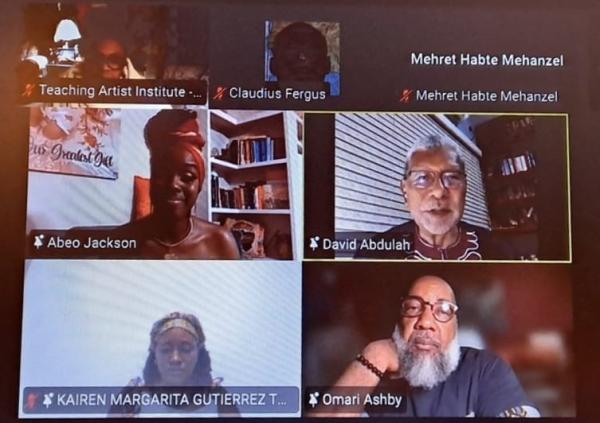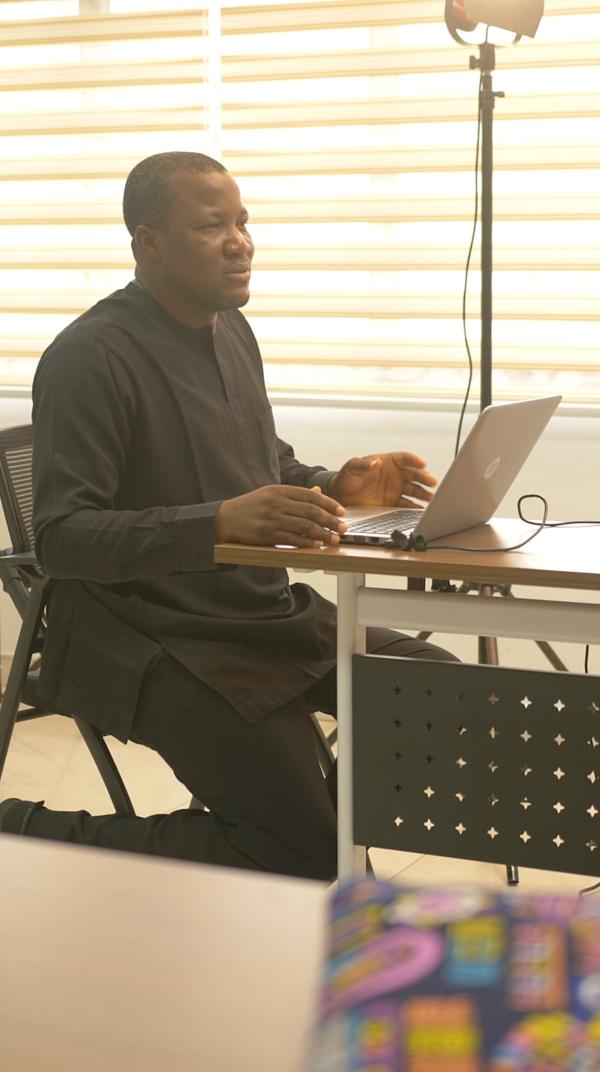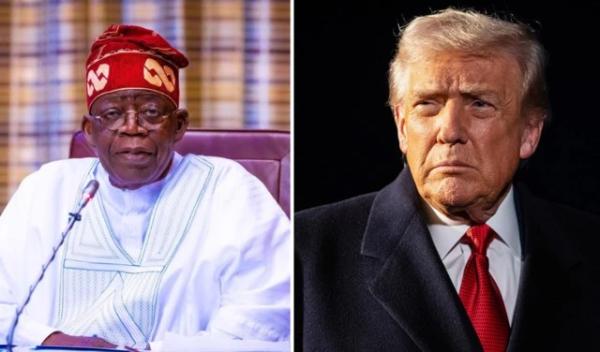
ACALAN Executive Secretary Dr Lang Fafa Dampha at the sixth Pan-African Cultural Congress of the African Union.
The Directorate of Social Development, Culture and Sport of the Department of Health, Humanitarian Affairs and Social Development of the African Union held its 6th Pan-African Cultural Congress (AU/PACC6) in Moroni, the Union of Comoros, from 25 to 27 September 2024. In line with the African Union theme of the year for 2024, which is “Educate and Skill Africa for the 21st Century”, the congress was organised under the theme: "Arts, Culture, Heritage, and Education: Levers for Building the Africa We Want’’.
The triennial congress, attended by cultural policy makers and experts, representatives of Member States, civil society organisations, cultural workers, researchers, arts educators, designers, creative workers, producers, entrepreneurs, pan-African cultural institutions, and international organisations, provides a platform for pan-African cultural institutions, cultural workers and artists to reflect on the theme and devise strategies to develop and promote the arts, culture, heritage, and education sectors on the continent.
Alongside Mrs. Angela Martins, Ag Director for Social Development, Culture, and Sport, the ACALAN Executive Secretary participated in session 4 on AU Overarching Policy in the sector: The Role of Pan-African Cultural Institutions, Cultural Workers and Artists in the Advocacy and Implementation of AU Instruments, moderated by Dr Sibongile Masuku, Member of the AU Arts Education Working Group. Presenting the Language Plan of Action for Africa, and new developments such as the Dar es Salaam Framework for Action on Kiswahili as a Working Language of the African Union and Language of Wider Communication in Africa; the African Languages Week; and the Decade of African Languages alongside the International Decade of Indigenous Languages of the United Nations, Dr. Dampha emphasised the indispensable role of African languages in fostering African integration, development, peace and security.
He made reference to Article 29 of the OAU Charter, subsequently Article 25 of the AU Constitutive Act, after the transformation from the OAU to the AU, which states that "…The working languages of the Organisation and all its institutions are, if possible, African languages, …”. Accordingly, the use of African languages in all sectors is possible. However, measures must be taken to concretely materialise it. He considered the creation of the OAU Inter-African Bureau of Languages, (OAU-IBL), in Uganda, in the 1960s, whose responsibility was to assist member states to develop national language policies, as the very first initiative of this endeavour.
The OAU-IBL developed the Language Plan of Action for Africa in 1984, and the plan was adopted in Mauritius, in 1986. It encouraged Member States to develop clearly defined language policies, to ensure that African languages are recognised and accepted as a source of mutual enrichment; to liberate Africans from undue reliance on the utilisation of non-African languages as the dominant, official languages of the states; and ensure that African languages, by appropriate legal provision and practical promotion, assume their rightful roles as the means of official communication in the public affairs of each Member State. The plan urges the African Union, in collaboration with the Regional Economic Communities, non-governmental organisations, civil society organisations, and research and academic institutions, to work with Member States to develop relevant language policies, exchange best practices and promote African languages for the sustainable development of the continent.
Dr. Dampha informed participants that ACALAN launched the African Languages Week in Ouagadougou in July 2021, in line with its adoption by the 3rd African Union Specialised Technical Committee; Youth, Culture and Sports (STC-YCS3), in Algiers, in 2018, through ACALAN’s proposal for the African Languages Week. The week is a perpetual rendez-vous that aims to:
⦁ Commemorate the relevance of African languages and cultures in Africa and the African diaspora;
⦁ increase awareness and appreciation of African languages by looking at pragmatic ways of empowering and rendering them relevant to the lives of Africans;
⦁ promote the dynamics of African worldviews and philosophies of life, through the empowerment and use of African languages;
⦁ demonstrate the indispensable role of African languages in the integration and sustainable peace and development of Africa;
⦁ advocate for the promotion and protection of African languages and their use in all spheres of life, especially as official languages and languages of instruction, while at the same time creating awareness of the need for Member States of the African Union to develop national language policies within the context of the African Union’s Language Plan of Action for Africa; and,
⦁ sensitise Africans on the role of African culture, of which African languages are a major component, in establishing the cultures, peace, and promoting sustainable development.
Dr Dampha says that the Heads of State and Government of the African Union adopted the proposition of ACALAN to implement a decade of African Languages alongside the UN International Decade of Indigenous Languages 2022 – 2032, within ACALAN’s mandate and programmes, during the Mid-Year Coordination meeting between the African Union, the Regional Economic Communities, and Regional Mechanisms, held from July 13 to 16, 2023 in Nairobi, Kenya.
ACALAN has planned to have the Language Plan of Action for Africa revised to take into account the aforementioned transformations for the Plan to be implemented more effectively.
Dr Dampha stressed that the majority of African decision-makers have opted in a self-imposed manner to use the former colonial languages as official languages and languages of instruction and communication, from the time of their independence into the present day. However, African indigenous languages should rightfully play those roles because they are the languages the people know best, and they play a vital role in preserving cultural identity, promoting social cohesion, and empowering local communities.
Dr Dampha urged Member States to contribute to the implementation of Assembly Decision/AU/Dec796 (XXXIV) for Kiswahili to become an effective working language of the African Union and a language of wider communication in Africa, as well as the implementation of the Language Plan of Action for Africa. He emphasised that the empowerment of African languages and their use is indispensable for Africa’s effective integration and sustainable development, peace and security, simply because African languages are the languages the African people know best.
In conclusion, he emphasised that cultural development is inevitably one of the main factors of the sustainable development of a people. The development and effective use of African languages as one of the main pillars of African cultures is thus an indispensable factor of African integration, development, peace and security.
The following two issues were raised at Dr Dampha’s presentation:
⦁Don’t you think that this struggle for our languages is a lost cause because the issue of African languages does not even appear in the Second Ten-Year Implementation Plan of the African Union’s Agenda 2063, spanning 2024 to 2033?
⦁The fact that you did your presentation in English instead of an African language, when almost all of us are Africans, has defeated the purpose. We should set an example of what we are defending.
Responding to the first question, Dr Dampha quoted Aspiration five (5) of Agenda 2063: “An Africa with a strong cultural identity, common heritage, shared values and ethics. Pan-Africanism and the common history, destiny, heritage, respect for religious diversity and consciousness of Africa and her diaspora will be entrenched.” He assured that the empowerment of African language is well present in the second ten-year action plan, and continued to say that the very role of ACALAN is to ensure that African indigenous languages are not left behind in the process of Africa’s reconstruction
Commenting on the second statement, Dr Dampha said that not speaking his language in this gathering is not the issue. “Perhaps none of you understands my Mandingo from the Gambia,” he said, adding that the main issue is to cease using the former colonial languages to the detriment of African indigenous languages. Africans must empower and use their own languages so that the errors of the generation before will be rectified. “We are in the African renaissance which also signifies the linguistic renaissance of the continent. It is the role of our generation to do what we should do for the coming generations not to be indoctrinated to despise their own cultures, values and norms, to be lost like us. This is the main reason behind the Dar es Salaam Framework for Action, which promotes Kiswahili as a working language of the African Union and a common language for the continent, as well as vehicular and cross-border languages in each region to serve as working languages of the Regional Economic Communities (RECs). Kiswahili and the other African languages will be easier for us to learn and use because they are all African languages, which are naturally closer to us and our languages than English and French… ACALAN is working with the Regional Economic Communities to empower and use regional vehicular and cross-border languages as working languages. He advises all to speak their languages at home to their children, so that they can be fluent in their own languages. National language policies, he said, should be developed by Member States to place African indigenous languages at the core of national development.
At the end of the congress, to enhance the development and promotion of the arts, culture, heritage, and education sectors on the continent, the congress recommended, amongst others, to:
⦁Recognise that African languages play a vital role in preserving cultural identity, promoting social cohesion, and empowering local communities; therefore, translating policies into various African indigenous languages will enhance accessibility and understanding of the polices and encourage dialogue around the policies’ contents;
⦁Promote African languages as crucial ingredients for regional and global integration to achieve unity and peace across the continent;
⦁Use the media and engage young people and women to raise awareness and promote the implementation of continental arts, culture and heritage policies;
⦁Strengthen the role of culture in promoting peace, good governance, and human rights to build social cohesion, African identity, shared values and enhance human development;
⦁Promote Africa’s cultural and creative industries in all their disciplines to ensure their growth and enhanced contribution to building the Africa We Want, as encapsulated in the AU Constitutive Act, the AU Agenda 2063 Aspiration and Moonshot 5;
⦁Recognize culture as a public good, and the need for greater investments in the sector, and advocate for the implementation of AU policy organs’ commitments to arts, culture and heritage, including the implementation of the AU Assembly decision to provide at least 1% of national budgets to the sector;
⦁Initiate different programmes and projects engaging youth in the preservation and promotion of African languages in collaboration with ACALAN and other organizations by integrating them into educational, creative, and technological platforms, ensuring they remain vibrant and relevant.






















